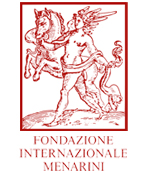
The new challenges for beating cardiovascular diseases
ROME, 12 SEPTEMBER 2017 – Interesting indications have emerged from “New frontiers to beat cardiovascular disease”, held recently in Rome. The convention was organised by Professor Massimo Volpe, director of the Faculty of Medicine and Psychology of the ‘La Sapienza’ University of Rome, Full Professor of Cardiology and Director of the Operating Unit of the Cardiology Complex of the Sant’Andrea Hospital of Rome, and promoted by the Fondazione Internazionale Menarini.
“The congress highlighted the new diagnostic and therapeutic frontiers that will allow us to make enormous steps forward in cardiovascular diseases in the coming years”, explains Volpe. “Important issues have been addressed, especially in the field of heart failure, which represents an increasingly more significant problem of epidemic proportions, as well as being one of the main causes of high expenditure and hospitalisation in Italy. It is very important to be able to avail of new instruments in order to deal with heart failure. Included among the new instruments are certainly the new classes of drugs that give rise to a 20% reduction in the mortality rate and hospitalisation. There is also the possibility of being able to overcome significant causes in the future, such as insufficiency of the mitral valve which occurs in patients with heart failure and complicates the prognosis, and the evolution of surgical intervention, such as the TAVI, for overcoming aortic stenosis. In addition, new indications in the use of pharmaceutical products that can interfere with the functioning of the mitochondria that are the “energy engine” of the cells, a function that decreases with heart failure, definitely represent the new challenges for the future. In view of the progress achieved by cardiology over the last forty years, I am certain that in the next five years we will witness a reversal of the trend in heart failure, both in relation to the death and morbidity rate, and also regarding the economic load imposed on the national health services”.
Another section of the convention addressed a very important aspect of cardiac hypertension, namely, the form that is resistant to treatment, in other words, blood pressure that continues to remain high despite treatment with three or more drugs belonging to different classes. The extent of this phenomenon is of great concern, and it is estimated that in Europe alone it affects just on 10-15 million people who are high risk subjects due to their high blood pressure levels. “In Italy, 45-50% of the general adult population are suffering from arterial hypertension, amounting to over 14 million subjects distributed equally between males and females. Of these, approximately 5-7% have resistant high blood pressure”, warns Volpe. “Uncontrolled hypertension is a huge problem for public health: patients under therapy who have uncontrolled high blood pressure are at the risk of developing cardiovascular complications (infarction, stroke, heart and kidney failure, and death) which is comparable to the risk in subjects with untreated high blood pressure”.
Download the Press Release:
Download PDF